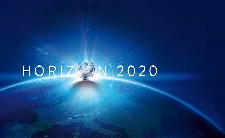Submitted by Administrator on Wed, 22/11/2017 - 11:37

The recently published interim evaluation of Horizon 2020 programme concluded that it is a unique and well-performing programme. Well over 100 000 applications to date confirm the popularity of this branch of EU research funding. However, despite Horizon 2020, the study concludes that the EU still underinvests in Research and Innovation. The EU's biggest ever research and innovation will aim to tackle this by investing a further 30 billion euros. Of this, €6bn will be allocated to ICT related projects covering the full innovation chain, from basic research to market uptake. As one of the main political drivers for the design of Horizon 2020, digitalisation is present in many areas of the work programme 2018-2020.
The "Digitising and Transforming European Industry and Services" focus area will account for €1.7bn and forms the core of ICT calls. This focus area will be set together out of several parts of the programme, mainly the "Leadership in Enabling and Industrial Technologies" and "Societal Challenges" pillars. Cybersecurity, as one of President Juncker's key priorities, will have an additional share in the Boosting the effectiveness of the Security Union focus area (~€1bn).
The Future and Emerging Technologies (FET) and e-infrastructures will represent the ICT share in the "Excellent Science" pillar of the work programme. This will include calls for High Performance Computing and the implementation of the European Open Science Cloud.
Compared with previous work programmes, the structure of the section of the "Leadership in Enabling and Industrial Technologies" pillar - dedicated to ICT - has been revised and aligned with the main political priorities in the digital area. The call dedicated to the implementation of the Digitising European Industry (DEI) strategy will boost investment and will help companies, researchers and public authorities to make the most of new technologies, such as 5G and the Next Generation Internet.
"Societal Challenges" is the third pillar of Horizon 2020. ICT contributions are expected in each of the seven challenges within this pillar. The societal challenges address the need for research and innovations in various topics, such as health, food security, clean energy, and smart transport.
The European Innovation Council (EIC) pilot will be a new feature of the 2018-2020 work programme and aims to foster breakthrough and market-creating innovations. As bottom-up measure, the EIC will promote close-to-market innovation activities and will be the new home to the FET Open scheme. The goal of the FET Open scheme is to build leading research and innovation capacity across Europe by the involvement of key actors that can make a difference in the future, for example: excellent young researchers, ambitious high-tech SMEs, or first-time participants to FET under Horizon 2020.
For further information on this investment, please see the original article on the European Commission website here.
For a breakdown of the Horizon 2020 programme and its relevance to GCI, please click here.


